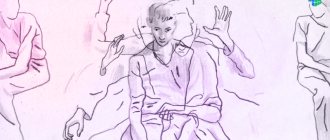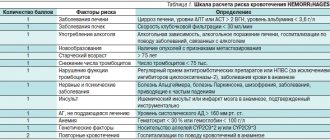History of the study
Conditions similar to Tourette's syndrome were described in ancient Greece, and in the Middle Ages they were considered manifestations of obsession. In the 1820s, French psychiatrist Jean Itard was the first to describe 10 cases of the disease. His work was later continued by Gilles de la Tourette. He studied and systematized the nervous tics that appear in Tourette's syndrome and determined the nature of the disease. In Russia, Vladimir Bekhterev studied this disease.
For a long time, no one knew about the existence of the syndrome. Photo: freepik.com
Reasons for appearance
It is not known exactly why Tourette syndrome occurs. Today it is associated with heredity - the disease often appears in close relatives. However, it has not yet been established which gene is responsible for the appearance of the syndrome. It is believed that external factors may also influence the risk of developing the disease, but the specific causes or conditions for the occurrence of tic disorders have not been identified.
There are a number of factors that influence the severity of symptoms. Among them:
- intoxication;
- increased body temperature;
- past streptococcal infection;
- taking psychostimulants in childhood (with attention deficit disorder, with emotional stress).
Tourette's syndrome is not uncommon. For example, in the United States, every 160 children aged 5 to 17 years suffer from it.
There are several disorders associated with Tourette syndrome (the disease appears against their background or is accompanied by them):
- attention deficit hyperactivity disorder (ADHD);
- obsessive-compulsive disorder (repetitive obsessive behavior or thoughts);
- behavioral problems: anger, aggression, disobedience, socially unacceptable behavior;
- separation anxiety;
- poor learning ability;
- difficulties with social interaction;
- sleep disorders;
- sensory disturbances, such as hypersensitivity.
Prevention
The influence of genetic predisposition cannot be excluded in any way. To reduce the risk of neurological disorders in a child during pregnancy, it is important for the expectant mother to be observed by a doctor. You need to eat right, take medications only as prescribed by your doctor, do not smoke or drink alcohol.
You can reduce the frequency and intensity of attacks if:
- avoid stressful situations;
- love the child and let him know his feelings;
- avoid conflict situations, including those in which the child is not involved;
- work with a psychologist or psychotherapist;
- help him adapt to children's groups;
- develop artistic or musical abilities.
Tourette's syndrome is not a death sentence; it does not affect mental and physical development. The impact on the emotional sphere can be avoided if you create favorable conditions in the family, visit a psychologist, and help the child in everything. Most often, symptoms disappear after 18-20 years.
Symptoms of Tourette's syndrome
The appearance of tics is the main symptom of Tourette's disease. They can be motor or vocal. Motor tics are jerking or involuntary movements. Vocal or vocal sounds - sounds, for example, snorting, screams, words or phrases that a person is forced to repeat (video 1).
Video 1. Symptoms of Tourette's syndrome.
Tics can be simple: a small involuntary movement or utterance of a simple sound, for example, blinking, shrugging, hiccups, smacking, coughing. Complex tics involve several muscle groups at once or are manifested by complex sounds: words, phrases¹. For example, a complex motor tic involves jumping, touching oneself, or copying other people's movements (moving uses multiple muscles). A complex vocal tic is a change in intonation, repeating the same phrase, repeating the words of other people.
When do tics appear, and what to expect next?
Most often, Tourette's syndrome occurs in a mild form and does not require special treatment (only observation by a neurologist or psychiatrist).
Tics are very common. They often appear for the first time in early childhood (from 5 to 7 years), but the disease can also debut in adolescents. Tourette syndrome occurs more often in boys than in girls. Typically, after the first appearance, tics gradually become more frequent and noticeable. In most cases, the disorder peaks between ages 8 and 12, after which symptoms begin to subside. However, for some people they can last a lifetime.
A person with Tourette syndrome has difficulty controlling their own tics. They are preceded by warning sensations (aura), urges that force you to make a movement or utter a sound. This is comparable to the itching or feeling that occurs before sneezing. Unpleasant sensations gradually increase, and relief occurs only after the person makes a movement or makes a sound.
When a person is focused and concentrated on something (for example, reading, interesting work, physical activity), the preceding sensations (and the tics that follow them) appear less frequently. This feature is used in the treatment of Tourette's syndrome using cognitive behavioral therapy. The therapist teaches how to manage behavior and concentration so that the urge to tics appears less frequently.
Before the tick the following may appear:
- burning or stinging in the eyes;
- increasing muscle tension;
- dry or sore throat;
- sensation of a foreign body in the throat;
- skin itching.
A person can learn to control tics - for example, during school or at work, when he communicates with other people. However, after long periods of such control, release may occur, in which the tics are repeated many times over a short period. Stress, fatigue, agitation, or feeling unwell can make tics worse.
5 Facts About Tourette's Syndrome
- The syndrome first appears in children and adolescents and often goes away completely upon reaching puberty.
- The child cannot control his tics. It is very important to support him and look for treatment approaches together with his doctor.
- The condition does not affect mental abilities or development, but tics may cause problems with socialization and learning.
- Punishing a child for tics is useless and cruel. It is better to help him, support him and teach him to cope with the disorder.
- Tourette's syndrome is a common condition. Up to 12% of children experience tics, in 3-4% the tic disorder becomes chronic, and in 1% Tourette syndrome develops.
There are four degrees of severity of Tourette's syndrome:
- Mild, in which the person has good control over the symptoms, they are not noticeable to other people, and the patient has short periods when there are no tics at all.
- Moderate, in which the ability to self-control is preserved, but the tics are noticeable to others.
- Severe - it is almost impossible to control the manifestations of the disease.
- Severe - manifests itself mainly in complex motor and vocal tics that a person cannot control (Fig. 1).
Figure 1. Tics of varying complexity.
Source: MedPortal Tourette syndrome in children most often does not affect intellectual development, but associated communication problems, impulsivity, and emotional instability can complicate learning2. Sometimes the disease is accompanied by other disorders: obsessive-compulsive disorder, aggression, attention deficit hyperactivity disorder, panic attacks.
Diagnosis of the disease
The appearance of tics does not always mean that a person has Tourette syndrome3. This diagnosis is correct if:
- Symptoms first appear in childhood or adolescence (before 18 years of age).
- Simple or complex motor tics are accompanied by at least one vocal tic.
- Symptoms persist longer than 1 year.
- The disease progresses in waves, its manifestations become more or less pronounced.
- The appearance of symptoms is not associated with the use of psychoactive substances.
With temporary tic disorder, symptoms resolve in less than a year. Chronic (persistent) tic disorder lasts longer than a year, but the tics can only be motor or vocal. Temporary and chronic tic disorder is not Tourette's syndrome.
Diagnosis of the syndrome is performed by a neurologist or psychiatrist. He conducts a survey during which he needs to describe the manifestations of the disease, tell how long they last, how often they appear.
What signs indicate Tourette syndrome in a child?
Usually the disease becomes noticeable at the age of 5-7 years. You should consult a neurologist if you often experience rapid, repetitive, involuntary movements of the face, hands or body. It can be:
- blinking (Fig. 2);
- grimaces;
- nose twitching;
- movements of the neck, arms or legs.
Tics may change, but they persist and gradually intensify.
Vocal tics appear later, but in some children they appear almost simultaneously with motor ones. Figure 2. One of the signs of the syndrome is severe blinking. Source: Tourette's Doesn't Have Me", HBO and the Tourette Syndrome Association / Wikipedia (Creative Commons Attribution-Share Alike 3.0 Unported) When diagnosing Tourette's syndrome, the following methods are used for examination:
- A clinical urinalysis is performed to determine the levels of catecholamines and metabolites in the urine. This allows you to evaluate the excretion of dopamine, norepinephrine, homovanillic acid in order to judge the violation of dopamine secretion.
- Electroencephalography is a study of the electrical activity of the brain, allowing one to evaluate the functions of its structures.
- Electromyography is a recording of myograms of muscles involved in motor involuntary movement.
- Computed tomography or magnetic resonance imaging to visualize the brain.
These methods are used in diagnosis only in cases where, in addition to tics, there are tremors, signs of epilepsy, visual or cognitive impairment. They help distinguish Tourette's syndrome from autism, epilepsy, schizophrenia and a number of other diseases.
Treatment of Tourette's syndrome
Mild cases of the disease may not require treatment, but even then the disease is important to control. If the tics persist, increase, and affect the quality of life, treatment is carried out by a neurologist. The doctor may prescribe psychotherapy and medications.
Psychotherapy
Cognitive behavioral therapy is the mainstay of treatment for Tourette syndrome.
Photo: photographee.eu / Depositphotos Psychotherapy begins with information and training. It is important for the patient to know what is happening to him, how he can control the disease, what affects his condition. This helps to build the right tactics of behavior, to avoid stress, overwork, and the influence of other factors that increase tics.
Important! When a child is diagnosed with Tourette syndrome, parental support is especially important. Tics can affect relationships with peers, self-esteem, and emotional state, but they do not impair mental abilities or slow down development. It is necessary for parents to help the child adapt to this condition and learn to manage it. This will avoid concomitant disorders, ease the course of the disease, and reduce its impact on the child’s life. You can contact not only a neurologist, but also a child psychologist to get additional help.
At the first stage of therapy, an adult is told about the nature of the disease, its possible manifestations, ways to control tics and achieve remission. The patient is taught to recognize an approaching tic and to respond correctly to it.
Cognitive behavioral therapy (CBT) is used for treatment, during which a person learns relaxation techniques, techniques that help control tics, and the correct behavior when urges or “precursors” appear4. Tourette syndrome occurs differently in different people, and therefore each patient will have their own specific set of techniques that will be effective. During behavioral therapy, the therapist helps you identify them and learn how to use them. One such technique is replacing the tic with a less noticeable or prominent action. Meditation, breathing exercises and other methods can also be used.
Psychotherapy can also address related problems associated with Tourette's syndrome:
- depressive disorder;
- anxiety;
- panic attacks;
- ADHD;
- anger, aggression;
- emotional instability;
- low self-esteem;
- social maladjustment and others.
The use of psychotherapy is very important in the treatment of Tourette syndrome. It alleviates the condition, helps cope with tics, and the disease has less impact on the patient’s quality of life. Behavioral therapy can be supplemented with art therapy, music therapy, and animal therapy.
Memo for parents: how to help a child with Tourette syndrome?
- Seek help: together with your child, undergo an examination with a neurologist and psychiatrist and find a psychotherapist who will help you learn to control tics and manage the situations or sensations that provoke them. But: don't rely on medications alone. Cognitive behavioral therapy gives good results, and it is better to start treatment with it. Do not turn to specialists who offer only drug treatment and consider Tourette syndrome to be an incurable disease.
- Support: the child needs the support of his parents.
Help him adapt to society. The calmer the child himself reacts to tics, the less they attract the attention of other people. But: support should be comfortable. Overprotection can make the situation worse. It is better to plan your behavior together with your doctor. Communication with other parents whose children have Tourette syndrome helps. On social networks you can exchange experiences and knowledge, as well as get support for yourself. - Cope together: Ask your child how you can help him or her during tics.
Sometimes the actions of parents can interfere: for example, a mother wants to hug her child at the moment of a tic, but this makes him feel worse. But: do not scold your child, do not try to “forbid” him from tics and do not punish him for them. All this will only worsen the situation. - Observe: Try to identify factors or situations that trigger tics and avoid them or reduce their influence.
It is important to monitor your general health, especially if the psychiatrist prescribes medications: you need to monitor for side effects. But: do not try to interpret symptoms or test results on your own, do not use medications without a doctor's prescription, and do not try to use traditional recipes.
Drug therapy
The following types of drugs can be used in the treatment of Tourette syndrome:
- alpha-2 adrenergic agonists;
- antipsychotics;
- dopamine receptor blockers, drugs that destroy dopamine;
- antiepileptic drugs;
- serotonergic agents5.
These medications can only reduce the symptoms of the disease, but it is impossible to cure Tourette's syndrome with pharmacotherapy. All medications must be selected by the attending physician. First, the lowest possible dosage is always prescribed, at which the symptoms become less pronounced. When the patient's condition improves, the dose of the drug is reduced.
Important! Medicines are prescribed to children only if Tourette syndrome affects the emotional state, reduces self-esteem, and complicates relationships with peers. Prescription of medications can be avoided if psychotherapy is started in time, if the child receives support from parents and is able to adapt to his condition.
If comorbid conditions develop with Tourette syndrome, your doctor may prescribe medications to help manage them, such as low-dose stimulants for ADHD or serotonin reuptake inhibitors for obsessive-compulsive disorder.
New treatments
Deep brain stimulation (DBS) is a method of surgical treatment of certain movement disorders (parkinsonism, various hyperkinesis), the essence of which is the implantation of microelectrodes into certain areas of the brain6.
Another direction is the use of botulinum toxin, which relaxes muscles. Its use reduces the severity and frequency of motor tics, but the effect is temporary; this treatment method is used to correct tics of facial muscles.
Sometimes relief of symptoms occurs unexpectedly when treating conditions other than Tourette's syndrome. For example, in Japan, a connection was found between the severity of tics and the use of aligners (elastic mouthguards that are worn on the teeth to correct malocclusion and treat bruxism). When wearing aligners, tics occurred less frequently and were weaker.
What should you not say to someone with Tourette's syndrome?
If someone around you has Tourette's syndrome, try to treat them with care. An error would be phrases like these:
- You don't have any illness. I've never noticed your tics.
- Why don't you ever swear?
- It's all in your head. Just try to control yourself.
- Don't worry, I also think every now and then that I have Tourette's syndrome.
- If you try, you can easily get rid of tics.
- Can you be quieter!?
The impact of foul language on human health
Think about the facts! Over the past 20 years, the number of children with mental and physical developmental delays has increased 10 times. More than 80% of newborns are sick, only every 10 school graduates are healthy. The number of girls with chronic diseases has increased, and these are future mothers, carriers of the nation’s gene pool.
There are many reasons for this misfortune, but our verbal promiscuity plays not the least role among them. Today, grandfathers and grandmothers, men and women, boys and girls, boys and girls, use obscenities. Foul language negatively affects not only the health of those who swear, but also those who are forced to listen to swearing. According to the Public Opinion Foundation, today about 70% of residents of our country use profanity in their speech. 29% of the population never use it. At the same time, 64% are against it, and 32% believe that the use of swear words in speech is unacceptable. Is this bad habit so harmless? Why do people curse? Due to changing values, ideals and attitudes of society, youth culture considers foul language to be the norm of everyday life. In adolescence, the problem of obscene language becomes especially acute, because for a teenager, very often, foul language is a manifestation of independence, the ability to disobey prohibitions, that is, a sense of adulthood. But few of the guys know that foul language, like rudeness, is a weapon of people who are insecure. Rudeness allows them to hide their own vulnerability, because discovering weakness and uncertainty at this age is tantamount to complete defeat. What is profanity? Foul language is speech filled with indecent expressions, obscene words, and swearing. This phenomenon has many definitions: “obscene language”, “unprintable expressions”, “foul language”, “obscene language”. But for a long time, an obscene word among the Russian people has been called profanity, from the word “filth.” In V.I. Dahl’s dictionary, which is the result of a deep study of the living Russian language, it is said: Filth is an abomination, disgusting, everything vile, disgusting, disgusting, obscene, that disgusts carnally and spiritually; dirt and rot, corruption, moral corruption, everything disgusting to God.” In Russian, swear words are called swear words. The root of this word is mother. To utter such words means to encroach on the most dear, the most sacred thing a person has - his mother. In the “Dictionary of the Russian Language” by S.I. Ozhegov it is written: Mat (simple). Indecent and vile language with the mention of the word “mother”. Swear words are indecent words. Where did “swear words” come to us? In ancient Rus', swearing was a spell, a formula against evil spirits. Our ancestors uttered them, calling upon the demons of evil to help them. Witches and sorceresses used foul language in their spells, casting a curse. But everyone knew that it was impossible to scold children with such words: they would be tormented by demons. You cannot use foul language in the house: demons will live in this home. It was also forbidden to swear in the forest: a goblin might be offended; on the banks of a river or lake, a merman might be offended. Swear words were not introduced into our speech by the Mongol-Tatars, as many claim; they, unfortunately, have original Russian roots. In ancient Rus', it was considered indecent to become like cattle and yell obscenities about something that belonged to the sphere of intimate relationships. A misconception is the generally accepted opinion that swearing is a Slavic tradition. Foul language in Rus' until about the middle of the 19th century was not only not widespread, but was criminally punishable. During the time of Tsar Alexei Mikhailovich Romanov, it was simply impossible to hear swear words on the street. And this is explained not only by the modesty and delicacy of our ancestors, but also by the policies pursued by the state. For foul language, a person was subjected to public flogging: disguised officials with archers walked in the markets and along the streets, grabbed the scolders and immediately, in front of the people, flogged them with rods for everyone’s edification. Under Peter I, the book “The Honest Mirror of Youth” was published, where it was written that decent behavior of people can only be recognized with complete abstinence from swearing. The most important and scientifically confirmed fact is that swear words are dangerous to health , they not only contribute to a decrease in intelligence, provoke crimes, rob people spiritually, humiliate and insult, but also, by absorbing verbal dirt, cripple people’s destinies, leading to early aging and premature death. A group of scientists led by Candidate of Biological Sciences P.P. Garyaeva came to the stunning conclusion that with the help of verbal images a person creates or destroys his genetic apparatus. Researchers have proven that swear words seem to explode in the human genetic apparatus, as a result of which mutations occur, which with each generation lead to human degeneration. And this is said in light of the current demographic situation in Russia. Scientists have invented a device that translates human words into electromagnetic waves. A person swears, and his chromosomes warp and bend, genes change places. As a result, DNA begins to develop unnatural programs. This is how the program of self-destruction is gradually passed on to the offspring. Scientists have recorded that swear words cause a mutagenic effect, similar to that produced by radioactive irradiation with a power of thousands of roentgens. The communication experiment was carried out for many years on the seeds of the Arabidopsis plant, almost all of them died. And those that survived became genetic monsters. Another group of scientists, led by Doctor of Biological Sciences I.B. Belyavsky, studied the problem of foul language for 17 years. They proved that habitual foul-mouthers live much shorter lives than those who do not foul-mouth. Age-related changes occur in their cells very quickly and various diseases appear. Moreover, foul language negatively affects not only the health of those who swear, but also those who are forced to listen to swearing. But our ancestors knew for a long time that evil words kill. The curse struck to death. And with a word they raised the dead and healed the sick. Interesting experiments were carried out by scientist Gennady Cheurin. He spent 20 years studying the power of swear words on people. The scientist claims that these words have a very active effect on the human body, over time destroying all living things, everything that grows or stretches upward. Scientists were able to prove Cheurin’s hypothesis “about the influence of profanity on the state of living organisms.” When scientists poured “abusive” water on wheat grains, the result shocked the scientific world: the grains watered with water, which was scolded, sprouted only 49%. And then scientists tried the opposite effect - they watered the wheat with water over which prayers were read. It germinated by 96%. The famous Russian researcher V.I. Vernadsky wrote, for example, about water, which is capable of accumulating, storing and transmitting information. Experiments were carried out: different words were pronounced over test tubes with water. Some are kind, others are abusive. The equipment showed that in the first, the water particles lined up into beautiful structures, similar to three-dimensional snowflakes, while in others, tangled, torn shreds formed. A similar experiment was repeated on plant sprouts. Those over whom harsh words were spoken began to wither. They began to say a prayer over the same plants. Scientists called it a miracle: DNA structures began to be restored. This is the powerful energy contained in ordinary words that we sometimes pronounce so thoughtlessly. To the same extent, our words have a destructive or constructive effect on those around us. It is easy to imagine the risk a person is exposed to when using or hearing such words. In the 20th century, Japanese scientist Masaru Emoto scientifically proved that water not only perceives information, but can change under the influence of words and even thoughts. Using the latest equipment, he was able to freeze and photograph water under a microscope. What he saw at the molecular level amazed him. The photo showed mostly crystals of different shapes and clarity - in appearance they looked very similar to snowflakes. Before freezing, the water was spoken with different words in many languages or influenced by music. It turned out that the shape of the crystals reflects the amazing properties of water. The scientist concluded that praise affects water better than a request or demand, and foul language is not capable of generating harmonious beauty. Very interesting research, considering the fact that the human body is 70 percent water, and the brain is 90 percent. The “kind vocabulary” that Krasnoyarsk doctors began to use in their psychotherapeutic sessions not only lifted the mood of patients, it also actually changed the composition of their blood: it increased its energy capacity and cellular immunity. In patients who came to Krasnoyarsk, purulent abscesses began to heal faster. Patients with colds recovered 5-7 days earlier than those taking medications. Words such as “love,” “hope,” “faith,” and “kindness” had a particularly strong impact on people. A person who is accustomed to swearing is already dependent on his bad habit. Often swearing is used, as they say, to connect words. People get so used to it that they can’t do without it. Even parasitic words (“so to speak,” “in short,” “well,” “as if”) can be very difficult to get rid of, especially from foul language
Foul language is especially dangerous for children. Their intellectual development depends mainly on the language spoken by the adults around them. If a child hears only speech consisting of two to three dozen words and expressions (mostly indecent), then there can be no talk of any mental and mental development of this child. To subsequently achieve any positive successes in life will cost him enormous volitional efforts. Family, parents are the beginning of everything; it is in the family that the foundations of morality, culture of behavior, and attitude towards other people are laid. Parents should not lose their authority in front of their children. Very often it is parents who become the “model” of dirty speech. If we remove all the swearing from the language of another foul language, we will see how poor his vocabulary is. Is it possible to reach such a person, how to show him the beauty and expressiveness of the Russian language? Moreover, a person uses obscene expressions not only when swearing, but also in ordinary conversation. At the same time, the conversation always leaves a painful impression in the soul, since any obscene expression carries an emotional connotation of cruelty, vulgarity, cynicism and rudeness. The speech of a person infected with the disease of foul language is extremely poor and indicates mental underdevelopment. A Russian proverb says: “From a rotten heart come rotten words.” When the human heart is corrupted, rotten, nasty words appear as signs of spiritual corruption. The most important ability of a person, which makes a person a person, elevating him above the animal world, is the ability to have a word.
The more perfect the language, the higher the level of culture and development of the people. It is known all over the world that the Russian language is one of the richest and most expressive languages. And it is very sad that, having a great, beautiful and powerful language, many Russian people refuse this priceless “treasure and heritage”, and when communicating with each other they use a pitiful semblance of human speech - obscene language.
We think little about the dangers of foul language and sometimes do not consider it a great evil. Mat serves many as a seasoning, for connecting words; but next to verbal blasphemy there is always blasphemy by action, that is, hooliganism. Foul language is the first step towards corruption, and from here the step opens to more serious crimes. And there is no need to look elsewhere for those responsible for the destruction of our spiritual nation. After all, it is we ourselves who infect everything around us with the virus of this disease, it is we who pour the poison of foul language into the hearts of our neighbors every day, and sow evil into the hearts of teenagers. These seeds drown out a good beginning, harden the heart, make a person cruel, self-loving, proud, and contribute to the rapid development of bad inclinations. Habitual swearing is an absolute and complete manifestation of lack of culture. Although it is related to the level of education, it is not directly: for the peasants, who had two classes of parochial school behind them, a swear word was as unnatural as laziness or poor work; at the same time, habitually swearing students, engineers and doctors. The main environment for the formation of habitual foul language is the family, the main reason is the cultural vacuum that reigns in it. This is why foul language is so persistent: a child who daily hears his parents “caressing” each other with harsh words will almost certainly grow up “swearing” and pass this habit on to their children. The most offensive expression used by the Chukchi and Eskimos can be translated something like this: “You are incompetent.” As a result, attempts are being made (this is also typical for children) to crowd out obscene words and replace them with others. This is precisely the reason for the spread of the word damn it in a kind of interjection function: “Here, damn it, it’s not working out again.” And, although there is a clear and undisguised phonetic allusion to the “original source”, this is still not a dirty curse. Another manifestation of foul language is deliberate shocking, a challenge to society, attempts to destroy generally accepted rules of decency. The range of this type of swearing is very wide - from elementary linguistic hooliganism, inscriptions on fences and in toilets to mannered and cynical (in public) speeches of some representatives of the intelligentsia and, so to speak, works of art - books, films, performances. Yes, in the texts of great Russian literature there are many lines and lines where the corresponding words, even in academic publications, were bashfully replaced by periods. There are not and cannot be any universal recipes for curing foul language. One thing is clear: this is possible only with a significant increase in the cultural level of both society and the individual. There is no need to indulge yourself with illusions: no one will teach a drunken man or a corrupt woman from the square of three train stations to speak another language. But a lot can be done in a micro-team - in the classroom, the student audience, and especially in the family. Let's be intolerant of bad language! The only path leading to health for every person is a change in the person’s attitude towards himself. Our language is a vital part of our overall behavior in life.
You need to learn good, calm, competent speech for a long time and carefully - listening, remembering, noticing, reading and studying. Although it is difficult, it must be done.
Izotenkova L.L., State Budgetary Healthcare Institution KO "KOZOZiMP"
Using materials from official sources.
03.02.21
Prognosis and course of the disease
Tics occur in many children, but they often go away so quickly that they are not even diagnosed. Only 0.3-0.8% of children are diagnosed with Tourette's syndrome, and 1% of these continue to have it into adulthood6. This disease is not dangerous to health, does not affect development, but can cause behavioral and social problems. It is more severe at high levels of stress, if a person tries to suppress tics, if he does not receive support, if the disease is not treated.
Tourette's syndrome and learning
If a child with Tourette syndrome has multiple motor and vocal tics, he can be homeschooled. To do this, you need to pass a psychological-medical-pedagogical commission (PMPC). This commission will assess the child's health status. She may recommend further schooling, training according to an individual plan or an adapted program, or transfer to home schooling. If the disease persists into adulthood, severe cases may result in disability. This will provide a number of social benefits, including exemption from conscription and the right to receive benefits.
The prognosis will be favorable if:
- contact a neurologist and psychotherapist as soon as possible;
- apply ways to manage stress, emotions, self-esteem;
- use techniques to “replace” or weaken tics;
- treat concomitant diseases or disorders.
Sometimes Tourette's syndrome greatly reduces the quality of life, affects the psychological state, and interferes with social adaptation. It is important to treat this disease and remember that even with it, a person can lead a normal life and achieve success.
Billie Eilish has Tourette's syndrome
The story of the famous American singer Billie Eilish confirms that Tourette syndrome can be controlled and you can lead a full life (video 2).
Video 2. Billie Eilish has Tourette syndrome.
Billie Eilish hid the disease for a long time, but in 2021 she admitted that she has Tourette syndrome. After this, the singer received many messages from fans who also have this disease or simply support her. The singer says that she has lived with the syndrome all her life, has learned to control it well, and her loved ones perceive its manifestations as something normal.
Billie Eilish lives with Tourette syndrome. Photo: benhoudijk/Depositphotos
Complications
The consequences of Tourette's syndrome concern mainly the psycho-emotional sphere. Due to constant ridicule at school, the child becomes anxious, nervous, withdraws into himself, and often experiences depression and stress. Sometimes such a child becomes prone to aggression. Emotional distress leads to sleep disturbances and interferes with adapting to society, meeting new people, and making friends.
Over time, the constant repetition of unfavorable and difficult situations leads to the formation of personality traits that further interfere with adaptation. They remain with a person even after the tics have disappeared, become rare and insignificant.
In general, the disorder does not affect life expectancy or mental or physical development.








